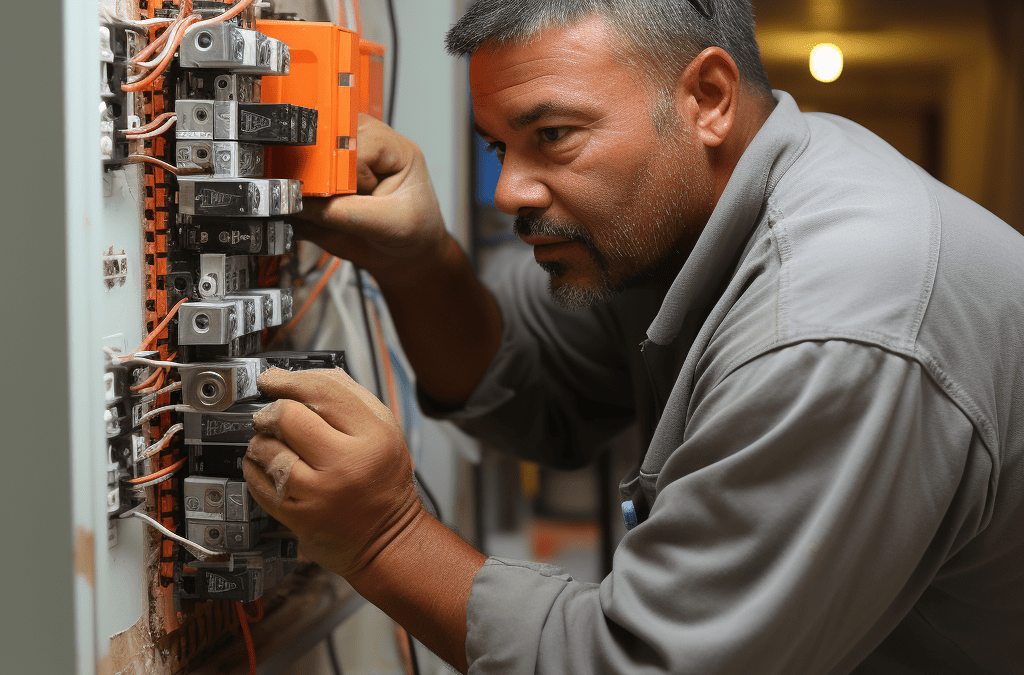Home renovations are a common practice among Brits, with an average annual spending of £34,000. Many homeowners invest in renovations to boost their property’s value before selling it. When considering renovations that offer a significant return on investment, rewiring your house often comes into question. If you’re pondering the necessity of rewiring your house before selling, this comprehensive guide will help you weigh the benefits, costs, and potential disruptions associated with this renovation.
The Benefits of Rewiring Your Home: Before delving into the cost and disruption of rewiring, it’s crucial to understand the advantages of this renovation. While there are no strict rules mandating house rewiring, its benefits are substantial:
-
Energy Efficiency: Rewiring enhances your home’s energy efficiency, making it more appealing to potential buyers.
-
Expansion Possibilities: A rewired home may facilitate future expansions or renovations by providing a safer and more robust electrical foundation.
-
Appliance Protection: Rewiring can prevent electrical malfunctions and protect valuable appliances.
-
Smooth Home Sale: A rewired home is less likely to encounter electrical issues during a home survey, ensuring a smoother and faster sale process.
Calculating the Cost of House Rewiring: The cost of rewiring your house is influenced by various factors, including property size, age, and location. Here’s a breakdown of potential costs:
-
One-Bedroom House: On average, rewiring a one-bedroom house costs around £3,500.
-
Five-Bedroom House: For larger properties in desirable areas, the cost can rise to an average of £10,000.
-
Location Impact: The geographical location of your property can also affect rewiring costs. Urban areas may have higher rates than rural counterparts.
While these figures provide a general idea, it’s essential to obtain quotes from professional electricians for accurate estimates. Some homeowners may also explore grants and loans offered by local councils to help cover part of the rewiring expenses.
The Time and Disruption Factor: Rewiring a house involves both financial and time costs. Understanding how long it takes to rewire a house is crucial:
-
Duration: A complete house rewiring can take at least 15 days, during which your property may be temporarily uninhabitable.
-
Preparation: To facilitate the rewiring process, you may need to remove furniture, carpeting, and floorboards, which can add to the disruption.
-
Safety Priority: While the process can be disruptive, it’s essential to prioritize safety and comply with regulations.
Frequency of House Rewiring: Determining when to rewire your house is a common query. Generally, experts recommend rewiring every 25 to 30 years for safety and compliance with modern standards. If your home has been rewired within the past two decades, a full rewiring may not be necessary.
DIY vs. Professional Rewiring: Considering the costs and complexities, some homeowners contemplate rewiring as a DIY project. However, it’s crucial to recognize that rewiring a house is a hazardous undertaking that demands professional expertise. Detailed instructions and diagrams for DIY house rewiring are generally not available, and attempting it without proper knowledge can lead to accidents and damage.
Is It Worth It? Ultimately, the decision to rewire your house before selling depends on various factors. While rewiring may not directly increase your property’s value, it can bolster your asking price by preventing electrical issues during the sale. Though it’s not obligatory, rewiring can be a valuable investment for a smoother and potentially more profitable home sale.
In conclusion, the choice of whether to rewire your house before selling should be informed by consultations with experts, considerations of your property’s specific needs, and your overall selling goals.

